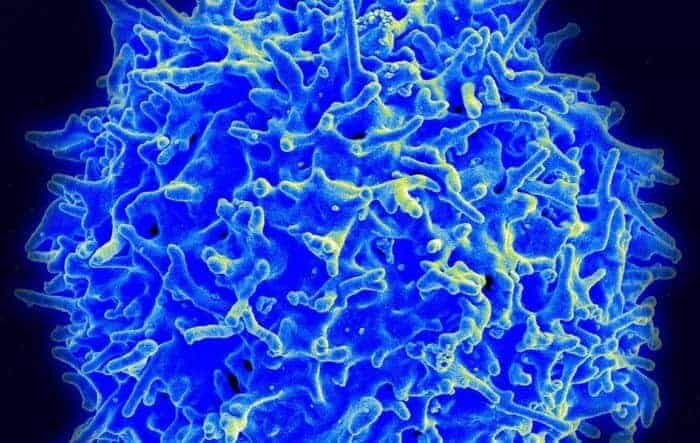For the first-time there is the prospect of medical doctors and researchers being able to alleviate the serious symptoms that follow with Parkinson’s disease. The disease is otherwise best known for causing shaking, muscle stiffness and slow movements in those affected; however, before things get that far and during the course of the disease, many patients experience sleep disorders, gastrointestinal problems, anxiety and depression. Unlike the symptoms in the motor system, there is no effective treatment for these more neglected symptoms.
A team of researchers from Aarhus University has now moved a step closer to understanding how the early symptoms occur – and possibly also how they can be checked.
In the study, which has just been published in the scientific journal EMBO Reports, the researchers show that in nerve cells with the same type of stress as Parkinson’s disease, there is a marked loss of calcium. Calcium is a basic element in the body and if the level of calcium decreases, cells cannot function. That is why it is very important to stop the loss of calcium. This is especially true for people who have an early stage of Parkinson’s disease, because malfunctioning nerve cells can give rise to symptoms such as sleep disorders and anxiety. According to the lead author of the study, MSc in Engineering and PhD, Cristine Betzer from the brain research centre DANDRITE at Aarhus University, being able to save the cells indicates that the symptoms can be inhibited.
“The study indicates that the treatment of calcium disturbances is meaningful because the nerve cells are protected. This may help to prevent the disease from developing into such a disabling disease as would otherwise be the case, “says Cristine Betzer.
One characteristic of Parkinson’s disease is that the patient loses control of his or her fine motor skills. This happens when protein structures in the brain begin to clump together and kill off nerve cells. By examining brain tissue from mice, pigs and humans, Cristine Betzer discovered that the clumped together proteins activate a calcium pump. When the pump begins working, the cells do not work normally and eventually die. It is therefore a case of inhibiting the activation of the pump in the first place.
In Aarhus, the researchers succeeded in doing this in a worm model that was modified to express human genes. “Experiments in the United States with similar models have shown that once the worms with the Parkinson’s protein have lived for eight days, their nerve cells begin to die. In our study, we treated the worms with an inhibitor against the calcium pump and then counted the nerve cells in the worms. And there were many cells left. Which is a sensational and encouraging result,” says Cristine Betzer.
She emphasises that the result cannot be directly transposed to humans, but it is a positive indication for the upcoming studies that will be carried out on mice and rats. “It’s a question of regulating calcium in the nerve cells. This is complicated, but also a promising area, as there are already a large number of medications for regulating calcium. It’s possible that the knowledge which already exists about the medications can help us make progress quicker in the new area”, explains Cristine Betzer.
She hopes that the study will offer new opportunities for treating Parkinson’s disease. Particularly for people who suffer from severe sleep disorders and cognitive disorders. “Our study points towards the usefulness of treating patients throughout the whole course of the disease, as the calcium pump will otherwise continue to pump and thus contribute to the patient’s symptoms. Perhaps the protection of nerve cells can also mean that the damage caused by Parkinson’s disease in the brain does not develop as severely as it otherwise would,” says Cristine Betzer.


